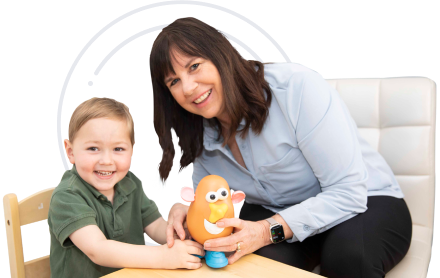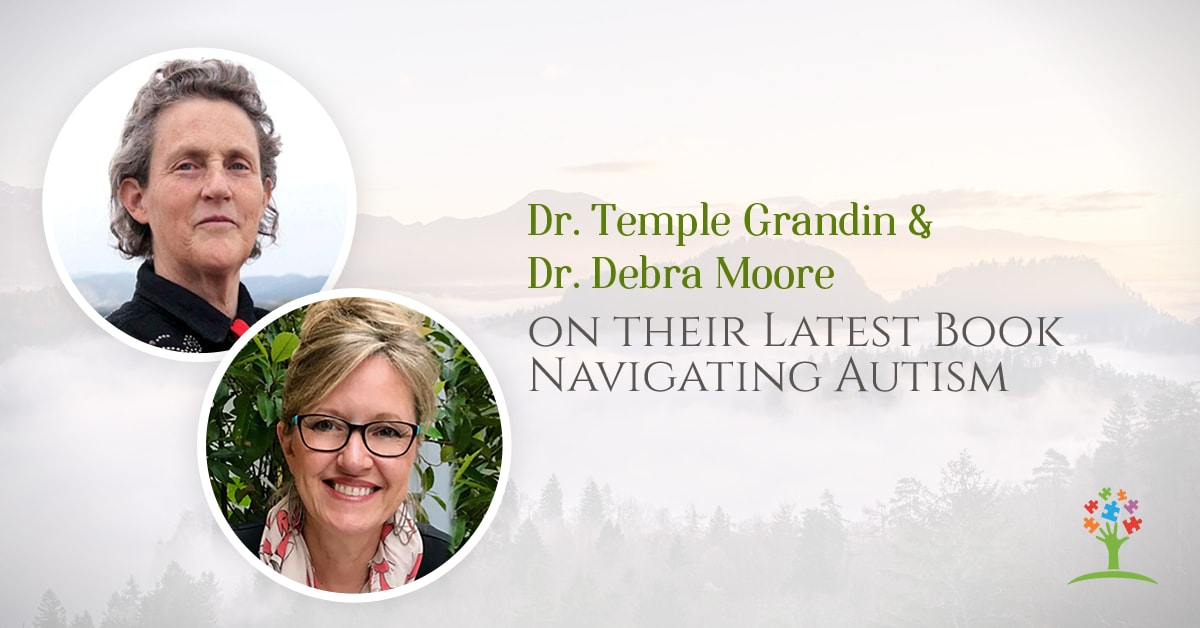Dr. Temple Grandin and Dr. Debra Moore on their Latest Book Navigating Autism
Want to Learn how to Increase Talking & Decrease Tantrums in Children with Autism or Toddlers Showing Signs?
Want to start making a difference for your child or clients?

Whether you’re a new professional or a parent who just received a diagnosis for their child, the strategies, in Dr. Temple Grandin and Dr. Debra Moore’s new book, are practical and empowering. Today I am talking with them about this latest book, Navigating Autism: 9 Mindsets For Helping Kids on the Spectrum, and all of the interesting information they share.
During this interview we came to understand and see over and over that autism is truly such a huge spectrum. Each child presents differently, has different abilities, skills, and interests, and are even very different thinkers. These differences are going to affect how they learn and how parents and professionals see their diagnosis and work with them.
We discuss controversial topics including medicating children with autism, common medical problems associated with autism, standardized testing, and the use of ABA therapy. Temple highlights problems she is seeing in today’s world with the over-medicating of children and the major side-effects that can occur.
Does this mean all medication is bad for your child with autism? Absolutely not. We talk about the big discussions that need to take place before introducing psychotherapeutic medications. However, we also highlight the importance of diagnosing physical illnesses and conditions that are common in autistic individuals, and treating them.
Can you measure a child’s abilities and needs in a one-size-fits-all test? Debra talks about all the details that really matter when having your child evaluated. Are there any sensory issues affecting their performance? How did the child’s morning go? There are so many variables that can be a barrier to a child being their best self, that are often not taken into account. On my checklist, we ask a lot of these questions because I too believe all of these details are so important.
Something I have come back to time and time again is the controversy behind ABA. The Turn Autism Around Approach is ABA, and ABA is a science that is at work all the time. Temple shares her insight on the why behind a lot of people’s disapproval of ABA and the reality that ABA has changed a lot to become what it is today. For Temple, she believes that a happy kid is a sign of good therapy, and I agree!
The mindsets in Temple and Debra’s new book are truly practical to fully develop the potential in any child.

Dr. Temple Grandin and Dr. Debra Moore on Turn Around Autism
Dr. Temple Grandin: Temple Grandin, PhD, is one of the world’s most respected experts in the fields of autism and animal behavior and livestock handling. She is an internationally best-selling author, and Professor of Animal Science at Colorado State University. In 2020, she was honored as a Top Ten College Professor in America. In 2010, Time 100, an annual list of the 100 most influential people in the world, named her in the “Heroes” category.
Dr. Debra Moore: Debra Moore, PhD, is a psychologist who has worked extensively with children, teens, and adults on the autism spectrum. She was the Founder and Director of Fall Creek Counseling Associates. She devotes her time to volunteering and writing. This is her second project with Dr. Temple Grandin, co-authoring The Loving Push: How Parents and Professionals Can Help Spectrum Kids Become Successful Adults in 2016.
You’ll Learn
- How can Temple and Debra’s mindsets help anyone work with kids on the spectrum?
- Does autism need medication?
- Should I give my child with autism medication?
- What medical conditions are associated with autism?
- Can I trust standardized tests for my child with autism?
- How important early intervention is and how it can be done at home
Resources
- Workshops – Learn more about our online courses and resources with a free workshop
- Free autism digital assessment
- Turn Tantrums Around Mini Course
- 5 Days to More Talking
- Kelly Bermingham Website
- Social Skills Solutions Book
- The Group Experience Book
- Kelly’s Podcast
- Should you teach eye contact?
- Teaching play and social skills
Want to Learn how to Increase Talking & Decrease Tantrums in Children with Autism or Toddlers Showing Signs?
Want to start making a difference for your child or clients?
